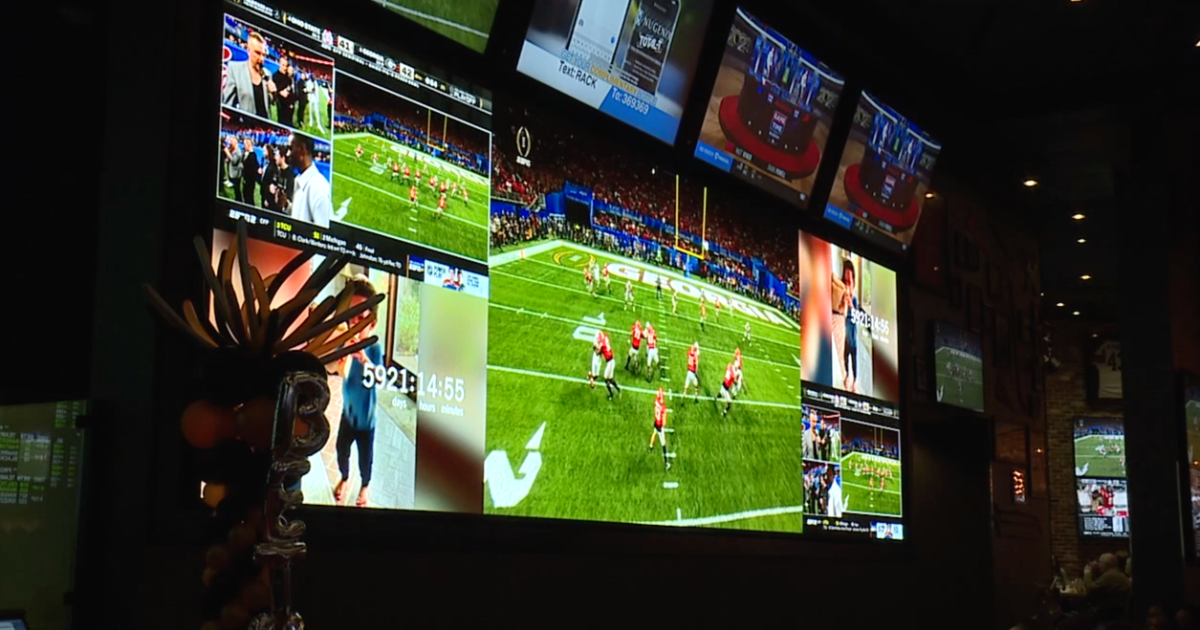
CLEVELAND — The State of Ohio continues its review of gambling in the state as it considers whether to add iGaming, which would allow you to play games like poker and blackjack on your phone for money. But the picture is much broader than that. From horse racing to lottery and bingo to sports betting, the Ohio Study Commission on the Future of Gaming is taking input on it all.
During the some of the racinos made their push for gambling options beyond VLTs.
“As you envision the future of gaming in Ohio, I’d like you to consider putting Ohio racinos on a level playing field with Ohio casinos through the introduction of table games, both live dealer player games as well as electronic table games,” said Amy Ankerson, Sr. V.P. & GM of El Dorado Scioto Downs.
“We believe that parity with Ohio casinos would bring significant benefits to the entire parimutuel industry and the state of Ohio,” she said.
This point was also argued by MGM Northfield Park in a written statement to the commission.
“We believe it is important for the Study Commission to explore the possibility of modernizing the offerings of Ohio’s racinos by allowing live dealer table games and or electronic table games, which are now only available at Ohio’s four casinos. This expansion would benefit racinos, the racing industry, and the state of Ohio.”
The casinos and commission members acknowledged that would likely need a vote of the people to change the constitution which gave the state’s four casinos only the right to offer those games. That’s why they also argue that should the state move forward with iGaming, only the casinos could offer it.
Where the casinos differ is in the benefits of iGaming. PENN Entertainment, the company behind the state’s Hollywood properties, is arguing for iGaming.
“PENN supports the legalization of internet gaming as a key catalyst for growth as it can be complimentary to existing brick and mortar businesses and drive gaming and associated tax revenue,” said PENN Vice President Jeff Morris.
Cleveland-based JACK Entertainment argued the opposite would happen if IGames were approved in the state, saying states that already have it saw a more than 10% drop in brick-and-mortar revenues.
“iGaming is a threat to Ohio businesses and Ohio employment,” said JACK Entertainment’s Dan Reinhard. “If this happens in Ohio, where there are four casinos and seven racinos, the brick and mortar casino revenues from in-person gaming could decline by over $220 million a year.”
Reinhard told News 5 after the meeting the evidence is clear: once people get a taste of online, it’s a bell that’s tough to unring.
“Look at any of our local malls, look at our empty storefronts. When the younger generation becomes accustomed to online shopping, online this, online that, retail suffers,” Reinhard said.
He pointed to sports betting, where 97% of Ohio wagers are made online, as an example.
“Absolutely; if you look at the sports betting numbers in Ohio all of the retail situations are dismal, the numbers aren’t there, the people aren’t coming in or if they do come in because we’ve got great sports books at JACK Thistledown and JACK Casino, people love them but they sit there and they bet on their phone because that’s what they’re accustomed to.”
Numbers released for February showed the state’s brick-and-mortar sports books actually paid out more in winnings than they took in in bets wagered.
“Despite the well-intentioned efforts of the Ohio Legislature, Ohio’s sports betting market is oversaturated, unhealthy for operators and of little benefit to Ohio businesses,” Reinhard told the commission.
The state doubling the tax on sports book revenue from 10 to 20% last year didn’t help; that’s why there was discussion this day about potentially lowering it back to 10 for those brick-and-mortar sports books.
“Ohio businesses suffered from the unexpected change so quickly after making those initial investments. The net effect of the poor business climate has been a much less dynamic sports betting industry than originally envisioned,” Reinhard said.
“JACK encourages the legislature to reconsider and reduce the tax increase placed on the industry, or at minimum, consider reducing the tax on retail operations based on the significant Ohio capital investments and Ohio employment.”
There is no timeline for any changes, though the commission could recommend.